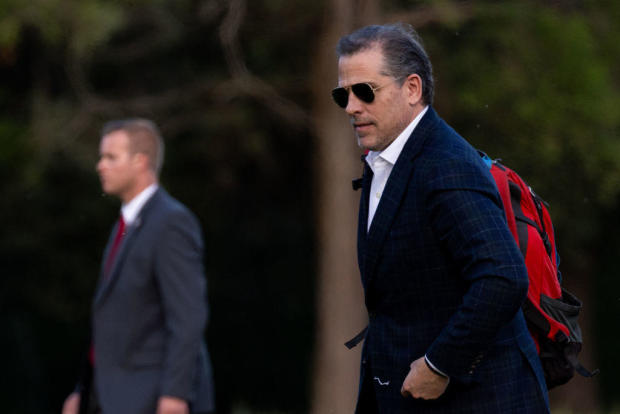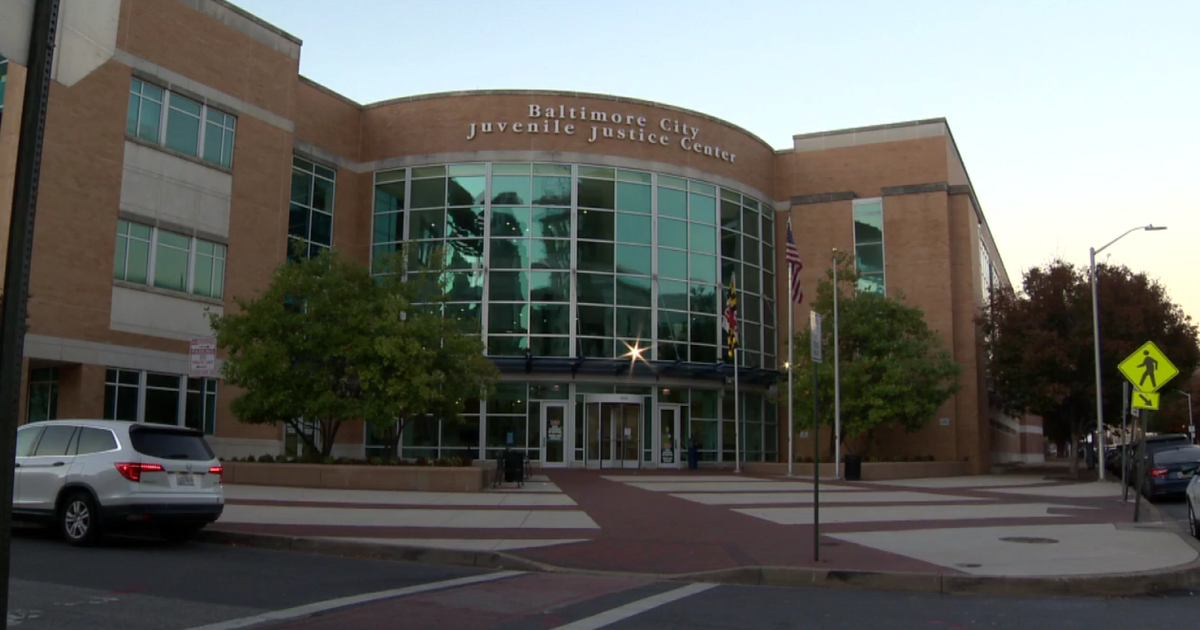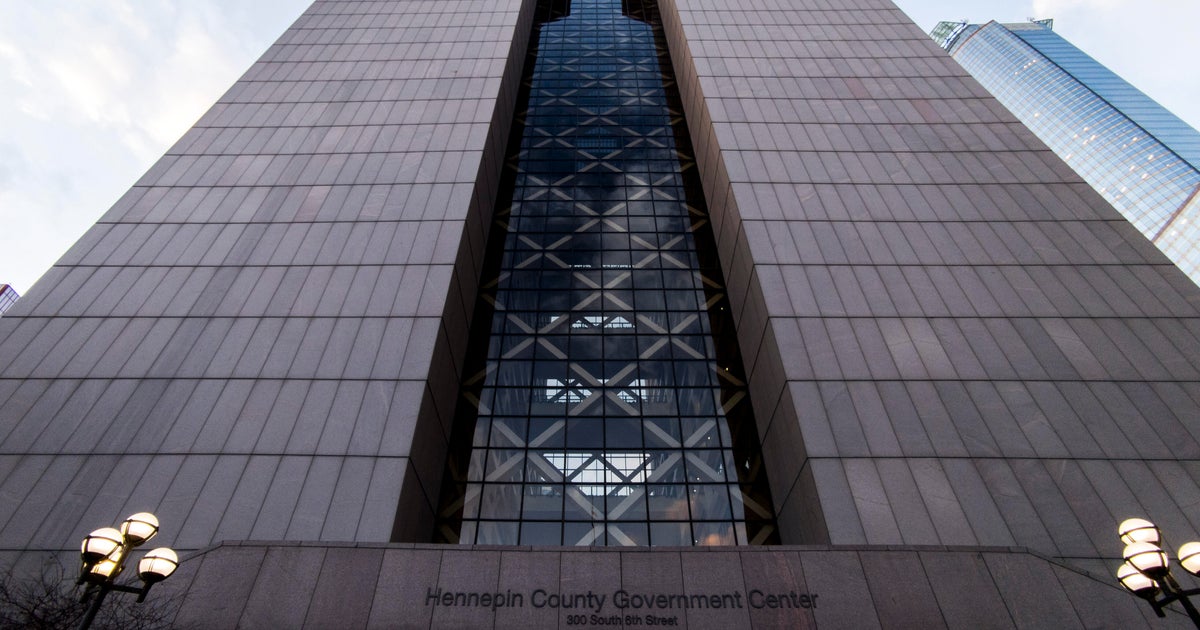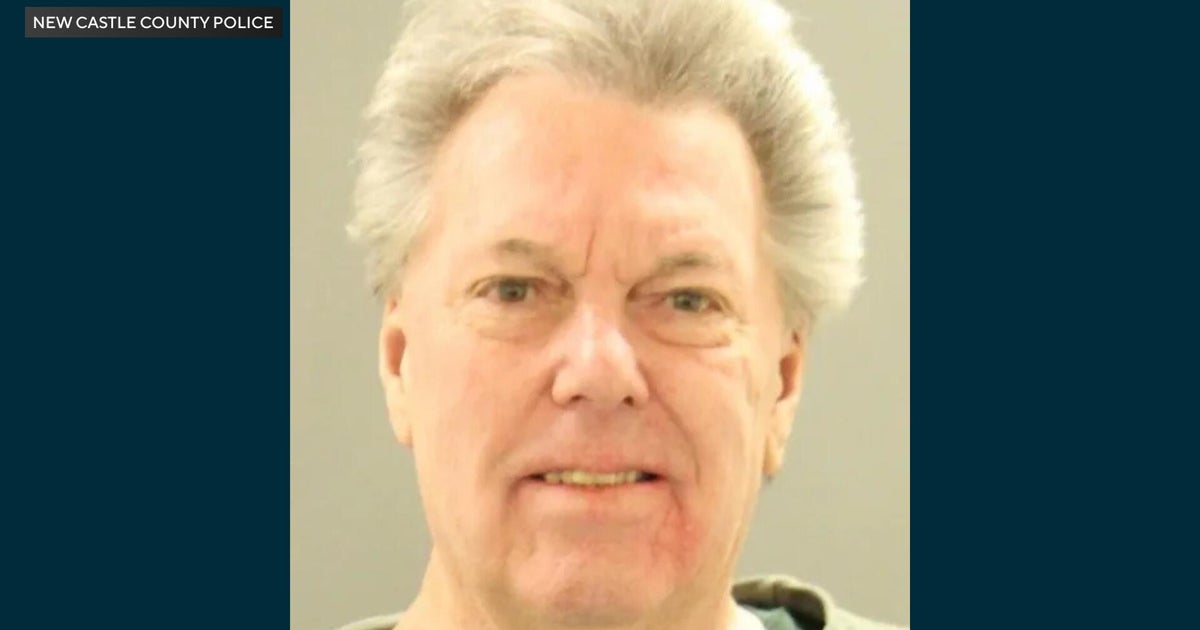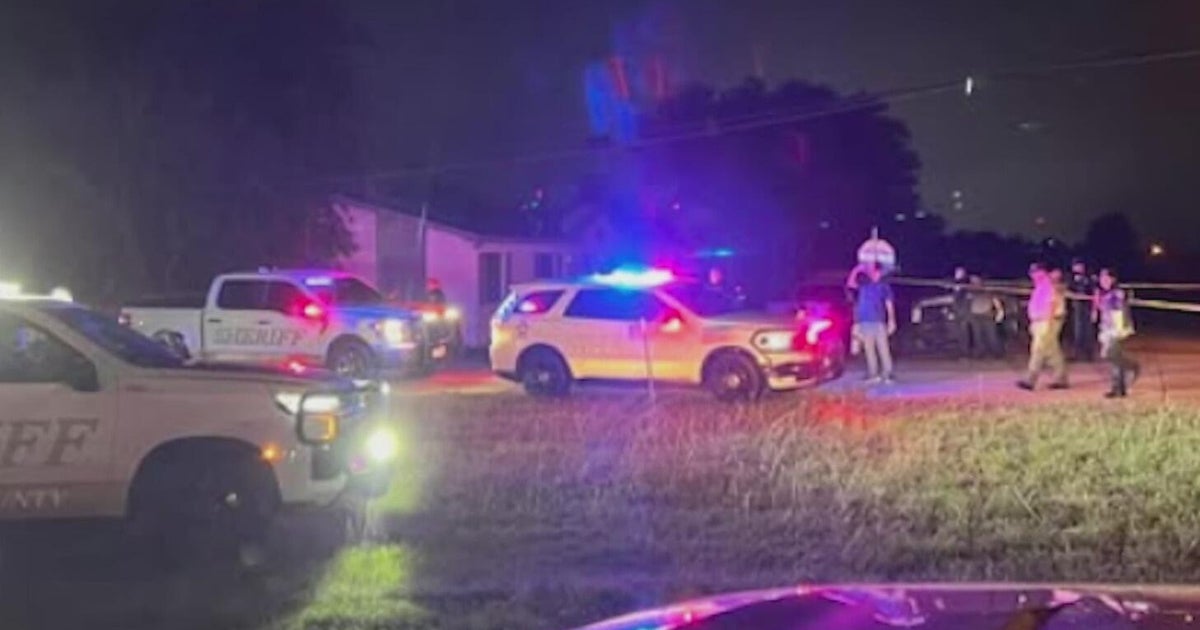Hunter Biden indicted on federal gun charges
Washington — Hunter Biden, President Biden's son, has been indicted by a federal grand jury on charges related to his purchase of a firearm in October 2018 while he was a drug user, according to court filings.
The four-page indictment returned by the grand jury convened in Delaware charges Hunter Biden with three felony counts stemming from his possession of a Colt Cobra 38SPL revolver in October 2018, which prosecutors previously said he unlawfully possessed for 11 days.
The first count of the indictment alleges that Hunter Biden "knowingly made a false and fictitious written statement" on a form used for firearms purchases. The president's son certified on the form that he was not an unlawful user of any narcotic drugs, a statement that was "false and fictitious," according to the charging document.
Hunter Biden allegedly knowingly made a false statement and representation to an unnamed, Wilmington-based firearms dealer, as detailed in the second count of the indictment. He is accused in the third count of the document of knowingly possessing a firearm across the 11-day period despite being an unlawful drug user, in violation of federal law.
All three counts are felonies, and if convicted, Hunter Biden could face a maximum sentence of 25 years in prison and fines of up to $750,000.
"As expected, prosecutors filed charges today that they deemed were not warranted just six weeks ago following a five-year investigation into this case," Abbe Lowell, Hunter Biden's lawyer, said in a statement in response to the charges. "The evidence in this matter has not changed in the last six weeks, but the law has and so has MAGA Republicans' improper and partisan interference in this process."
Lowell said his client "was not a threat to public safety" when he possessed the unloaded gun, and said special counsel David Weiss' "bending to political pressure presents a grave threat to our system of justice."
"We believe these charges are barred by the agreement the prosecutors made with Mr. Biden, the recent rulings by several federal courts that this statute is unconstitutional, and the facts that he did not violate that law, and we plan to demonstrate all of that in court," he continued.
A constitutional question
Keith Rosen, the former chief of the criminal division for the U.S. Attorney's Office in Delaware, said courts have weighed the constitutionality of the law that Hunter Biden is charged with violating. Whether it passes constitutional muster is a "real live issue," he said.
Under a standard adopted by the Supreme Court in June 2022 for determining when gun restrictions are allowed under the Second Amendment, a law must be consistent with the nation's history and tradition of firearms regulation. In August, a federal appeals court invalidated the law barring possession of a firearm by a person who is an unlawful drug user, finding it violates the Second Amendment.
"The government will probably say, 'This law is constitutional, but even if there's a problem with it, you're still not allowed to lie on the form,'" Rosen explained. Still, he added that the defense will argue the opposite, that the statute is unconstitutional, "and there's at least some judges around the country who have already found that to be persuasive."
And if the case goes to trial, he also warned of potential challenges when it comes to picking a potential jury pool in the president's home state of Delaware.
"I think the potential biggest risk that could be a risk for him, that could also be a risk for the government, is his last name," said Rosen. "If this case were to go to trial, both sides have to think seriously about how that plays when they're trying to find a jury to hear this case."
The dispute over Hunter Biden's plea deal
The indictment comes after a deal fell apart in July between the government and Hunter Biden's attorneys over taxes and diversion agreement on a firearms charge. Originally the president's son had been charged with two separate criminal informations with misdemeanor tax offenses and a felony firearm offense. But in a court hearing that was meant to seal the deal, a federal judge questioned provisions that would have allowed Hunter Biden to avoid prison time. The deal fell apart in real time, and Hunter Biden ultimately pleaded not guilty to the three charges.
Hunter Biden's attorneys have maintained that the collapse of the plea agreement did not nullify the diversion deal they struck with the government earlier this year. His attorneys have argued that despite this, Hunter Biden has continued to abide by the conditions of the agreement, which include staying clean and sober, as they consider it to still be in effect.
Prosecutors, however, have argued that the diversion agreement was void once the entire plea deal fell apart. Attorneys for Hunter Biden have indicated that they may argue that the diversion agreement was signed by both parties and thus the charges should be dismissed.
The charges are the first brought by Weiss in his investigation into Hunter Biden since he was appointed to the position by Attorney General Merrick Garland last month. Weiss said in a court filing earlier this month that he intended to seek an indictment against Hunter Biden before Sept. 29.
Weiss was tapped to serve as the top federal prosecutor in Delaware by former President Donald Trump and has been investigating Hunter Biden since 2018.
If the case goes to trial, it could take place in the midst of Hunter Biden's father's 2024 re-election campaign.
The indictment against Hunter Biden follows the opening of an impeachment inquiry by House Republicans into the president over his family's foreign business dealings. GOP lawmakers have accused Mr. Biden's son and family members of trying to profit from their access to the then-vice president, though they have yet to uncover direct evidence of wrongdoing by the president.
House Speaker Kevin McCarthy claimed Tuesday that Hunter Biden received "special treatment" by his father's administration.
The president has denied any involvement in Hunter Biden's foreign work, and the White House has repeatedly declined to comment on the special counsel's investigation into Hunter Biden.
